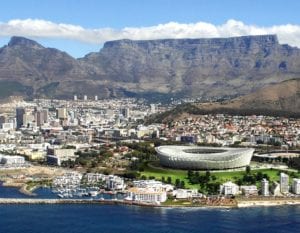Members of the built environment industry recently heard about some of the construction-related World Design Capital (WDC) Cape Town 2014 projects lined up for the year.
The professionals were invited by the Master Builders Association of the Western Cape to hear how the built environment can get involved with WDC‘s vision to transform Cape Town and the role the construction industry plays in using design as a tool for social, cultural and economic development. Professor Francis Petersen, a board member of Cape Town Design NPC and dean of the Faculty of Engineering and the Built Environment at the University of Cape Town, explained in a presentation that the mission of WDC 2014 is to identify, nurture and promote projects that offer tangible evidence of how design can improve lives. Over 460 transformative design projects have been officially recognised, and form part of the WDC 2014 programme. “World Design Capital 2014 asks for all to assist in transforming the city socially, economically and culturally. Everyone in the built environment industry – from architecture and construction to landscaping and surveying – must respond proactively; leveraging knowledge, opening innovation, co-design and ICT in addressing the challenges of social and cultural cohesion as well as economic development,” urged Petersen. “The success of World Design Capital 2014 must be visible many years after 2014. Let us not ask ‘where was the built environment industry in shaping the transformation of the city?’” Rob Johnson, Executive Director of the Master Builders Association of the Western Cape concluded the event by quoting Alderman Patricia de Lille: “When we broaden our horizon, we discover the tremendous energy and innovation of individuals, communities and firms using design every day to create solutions.”WDC 2014 projects related to the built environment include:
The Better Living Challenge: The Better Living Challenge is a call to designers and innovators, manufacturers and retailers, students and professionals, self-taught designers and tradesmen, architects and engineers, to develop home improvement solutions that support a better quality of life for all. Future Tyger: The Greater Tygerberg Partnership (GTP), supported by the City of Cape Town’s Mayoral Urban Regeneration Programme, proposes to bridge the divide between the City Bowl and Cape Town’s emerging second metropolitan centre in Tygerberg. The four-stage collaboration aims to transform the Voortrekker Road Corridor (VRC) into a place where communities can come together to facilitate urban transformation. Two Rivers Urban Park Regeneration: Situated at the confluence of the Liesbeek and Black Rivers, the Two Rivers Urban Park is has been earmarked by the City of Cape Town as an important social, historical, environmental and economic site. Currently an unused tract of land, it will be transformed into a mixed-use development that encompasses opportunities for working, shopping, recreation and other activities.






